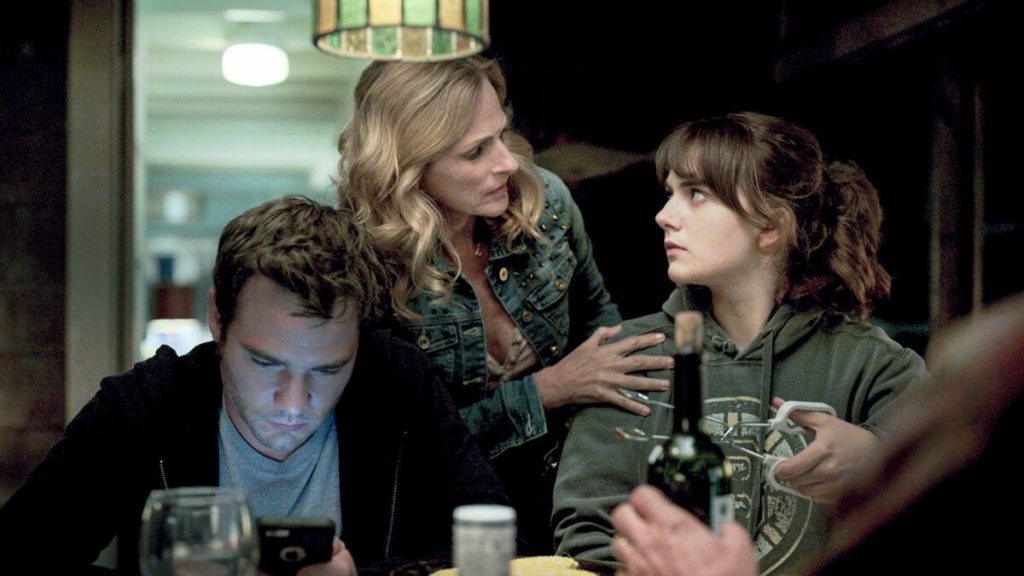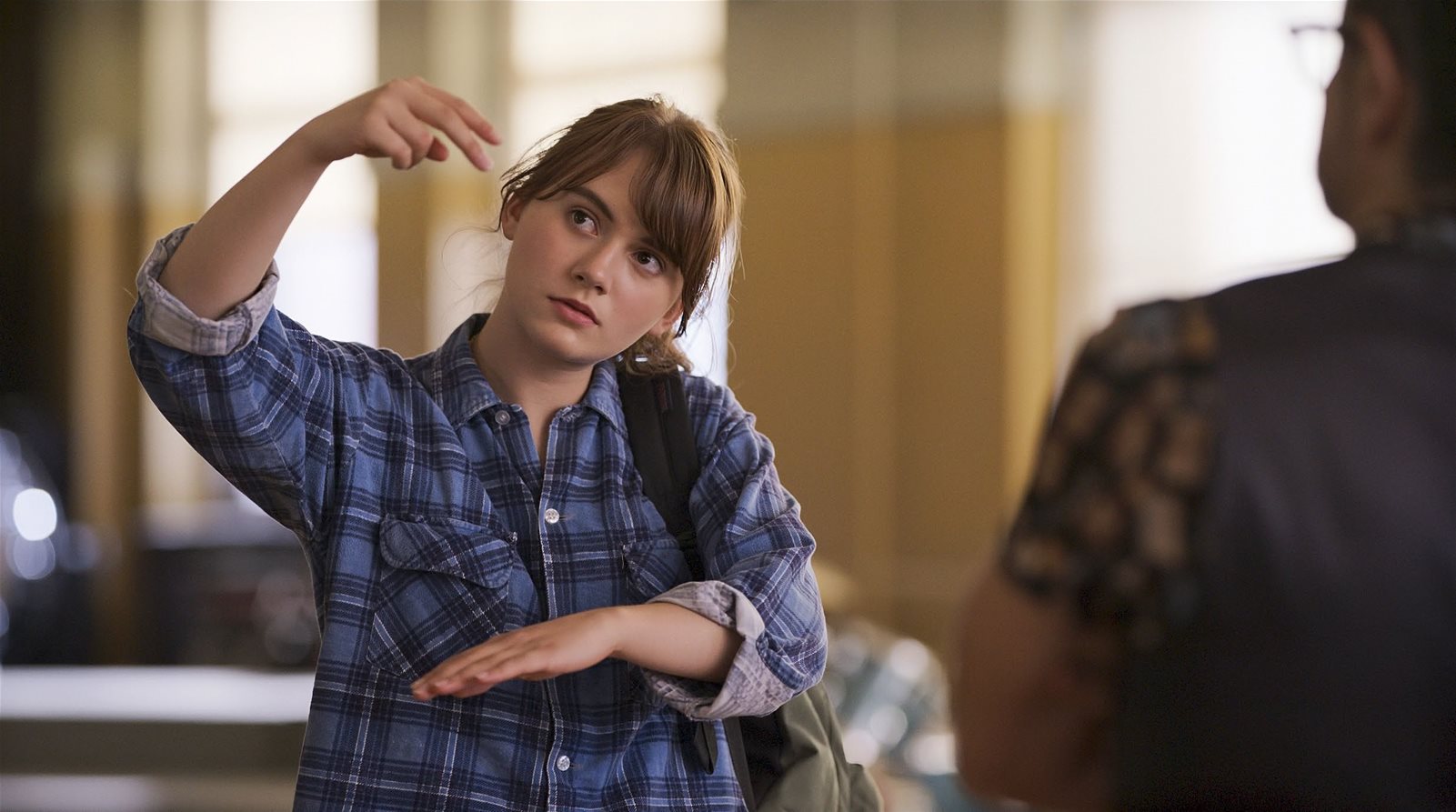CODA (short for Children of Deaf Adults) is one of happy cases of a simple, predictable story done very well. Directed by Sian Heder, the film follows a small-town girl as she balances her aspirations of singing with her responsibilities of supporting her deaf family. Although it is adapted from the French film La Famille Bélier, it manages to tell its story effectively to new audiences as well.
Ruby (Emilia Jones) lives in the coastal city of Cape Ann in Gloucester, Massachusetts. She helps her family communicate with non-deaf people in almost every imaginable situation, including helping them fish on their boat and sell their fish. It’s exhausting work, but Ruby is used to it. It’s when she starts taking a choir class and the teacher, Bernardo Villalobos (Eugenio Derbez) offers to teach her personally to help her audition for the Berklee School that her life starts to change.
It’s the actors’ performances that bring potentially rote characters to life. Ruby’s family is portrayed by real life deaf actors, Marlee Matlin, Troy Kotsur and Daniel Durant. Emily Jones also puts in a stirring, sincere performance, and her singing voice is also strong and distinct. Kotsur, in particular, is great as Frank, the father with no filter, as are Matlin as Jackie and Durant as Leo. Jackie, initially, is offended by Ruby’s passion for singing and wants her to focus on her family’s needs, but by the end she comes around and helps Ruby achieve her dreams. Leo is the typical protective younger brother who urges Ruby to pursue her passion and get out of the town. Even Ruby’s love interest, Miles (Ferdia Walsh-Peelo) gets a flawed, fleshed out character who presents an outsider’s view of the Rossi family.

With Ruby, in particular, we see a conflict where she can’t imagine a life without her family. She feels that they can’t function without her, which Leo points out as being wrong, since they got along just fine before she was born. Even during her first choir class, she is intimidated so much by the prospect of her classmates thinking she can’t sing that she rans away embarrassed rather than face it head on.
Sian Heder imbues CODA with authenticity, showing Cape Ann through a lived-in quality, especially how the working class families live and interact with each other. She respects the Rossi family’s deafness with respect and never makes them the butt of jokes. Nevertheless, the Rossi family often end up in funny situations, such as Ruby having to translate to her father that he had jock itch (a rash on his genitals, for those unfamiliar with the term), and then Frank giving Miles the ‘tough dad’ talk about him putting ‘a helmet on his soldier’. At the end, there are a handful of tear-jerking scenes that will get the best of even the most seasoned viewers.
Although CODA isn’t as thought-provoking as another recent film about deafness, Sound of Metal, it is still a resonant story with strong acting and direction.
Emilia Jones in particular had a bright future in acting in front of her. Hopefully, we see her in good roles where she can grow as an actress and gain bigger exposure.






















